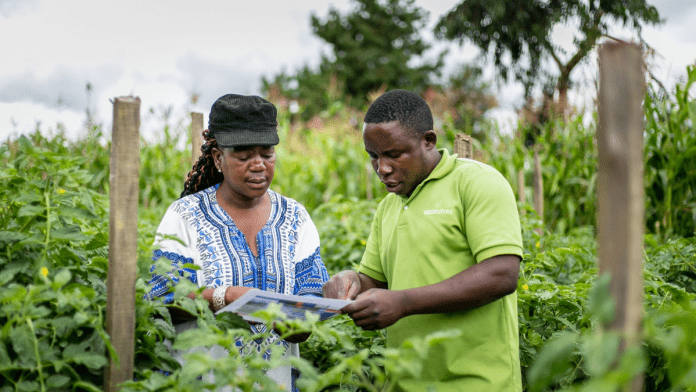News in brief: USAID announces $29 million to support research in fish and legume systems in Nigeria, Bangladesh, Kenya, and Zambia as part of its commitment to addressing global hunger and food security.
The United States Agency for International Development (USAID) announced a $29 million funding to support research into improving fish and legume systems in Nigeria, Bangladesh, Kenya, and Zambia.
According to a press release, the investment will extend two research partnerships under Feed the Future initiative, which are part of the government’s commitment to solving global hunger and food security.
On the one hand, Mississippi State University will lead a $15 million project to develop and scale innovations that sustainably increase fish production, prioritising natural resource conservation and the needs of producers and fishers.
Meanwhile, Michigan State University will lead a $14 million project to develop and promote improved legume varieties and cropping systems to support sustainable fish production.
The expected benefits of the Feed the Future Innovation Lab for Fish include increased fish production, improved food security and enhanced income for aquatic farmers.
Furthermore, the USAID opined that aquatic foods are nutritious sources of animal protein and important sources of income for aquatic farmers and fishers. The body believes the investment will help to strengthen the climate resilience of fisheries and other aquatic food systems in the four countries.
In its announcement, the agency called to mind that there are projections about fisheries in tropical regions losing nearly 50% of their current catch levels by the end of this century. However, with billions of people living in these regions relying on fish for protein and income, the need for resilient production is quite pronounced.
Hence, the importance of financing this research works. “This new phase of the Feed the Future Innovation Lab for Fish will prioritise increasing sustainable and climate-smart practices, such as enhancing the ability of coastal wetlands and other aquatic ecosystems to store carbon and reduce greenhouse gas emissions,” USAID wrote.
It added that the extension focuses on increasing food safety and diversity for more people to be able to participate in aquatic food value chains both for nutrition and livelihoods.
One favourable outcome of The Feed the Future Legume Systems Innovation Lab is the production of improved varieties of pest resistant cowpea and “common bean.” This progress is valuable because pests are responsible for most of the food loss and waste in legume production, accounting for nearly 80% loss in yields and more than 48% of post-harvest loss. With the new legumes varieties, farmers can increase income and there is more for consumption.
USAID mention expanding the work in legume systems into more African communities as well as Latin America and the Caribbean. It says that it has shown the capacity to empower and provide economic opportunities for youths and women.
Typically, farmers in beneficiary countries get access to new technologies and innovations, they also receive training and capacity building, and they get connected with markets and buyers for their products.



